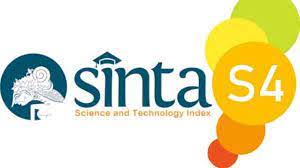Penanaman Nilai-Nilai Karakter Komunitas Rumah Inklusif Kebumen dengan Paradigma Sembilan Nilai Utama Gus Dur
Abstract
This research uses qualitative research with a case study approach to the Rumah Inklusif Kebumen Community with data collection techniques through observation, interviews, and documentation. All data were analyzed using the field analysis model, with the flow of data reduction, data presentation, and drawing conclusions. The results of this study can be concluded that the inculcation of character values carried out by the Rumah Inklusif Kebumen Community is seen using the paradigm of Gus Dur's nine main values related to monotheism, humanity, justice, equality, liberation, simplicity, chivalry, and traditional wisdom. Based on these nine values, the character values that are instilled in the Rumah Inklusif Kebumen Community include independence, responsibility, religious, tolerance, hard work, creative, independent, democracy, curiosity, national spirit, love for the homeland, respect for achievement, friendly or communicative, love peace, care for the environment, and care for society.
Copyright (c) 2021 Kholilatus Salma, umi arifah

This work is licensed under a Creative Commons Attribution-ShareAlike 4.0 International License.
This journal provides immediate open access to its content on the principle that making research freely available to the public supports a greater global exchange of knowledge.

Komunika by http://ejournal.iainu-kebumen.ac.id/index.php/An-Nidzam/ is licensed under a Creative Commons Attribution-ShareAlike 4.0 International License
Authors who publish with this journal agree to the following terms:
- Authors retain copyright and grant the journal right of first publication with the work simultaneously licensed under a Creative Commons Attribution License that allows others to share the work with an acknowledgement of the work's authorship and initial publication in this journal.
- Authors are able to enter into separate, additional contractual arrangements for the non-exclusive distribution of the journal's published version of the work (e.g., post it to an institutional repository or publish it in a book), with an acknowledgement of its initial publication in this journal.
- Authors are permitted and encouraged to post their work online (e.g., in institutional repositories or on their website) prior to and during the submission process, as it can lead to productive exchanges, as well as earlier and greater citation of published work (See The Effect of Open Access).










1.png)


